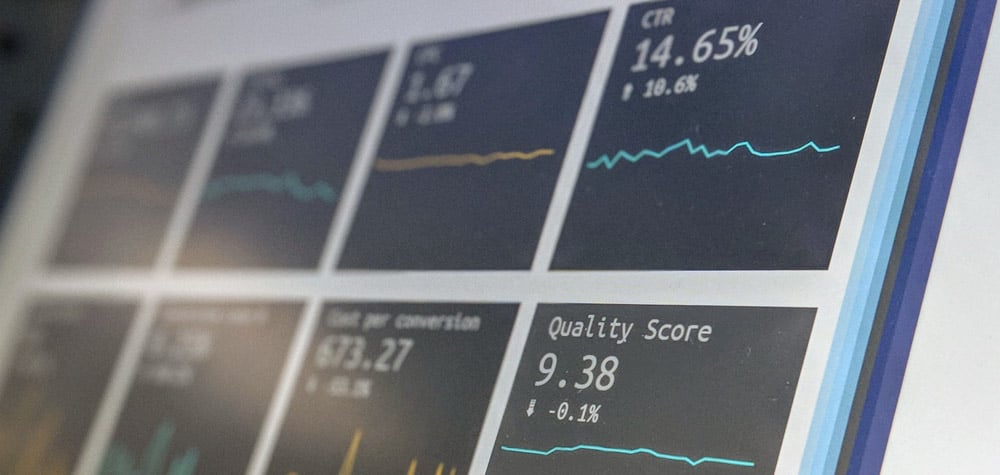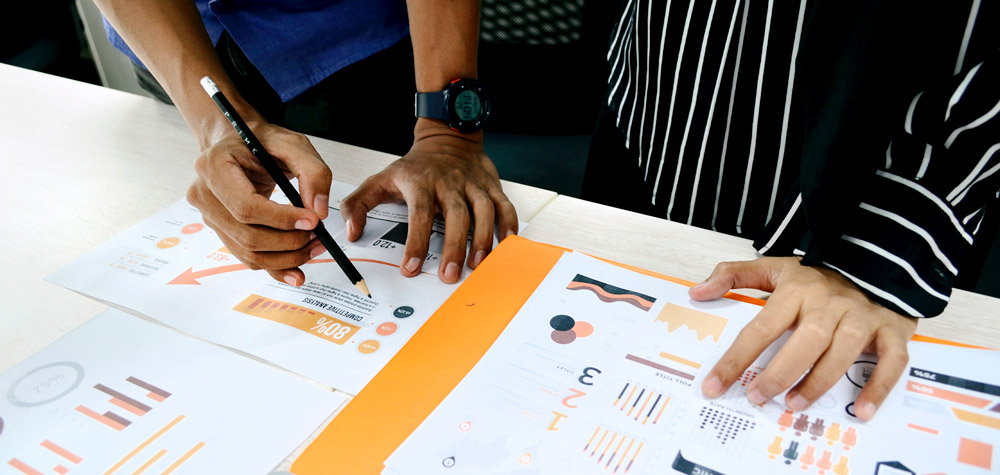From Insight to Action: How Data Empowers Event Planners to Make Informed Decisions
In the fast-paced world of event planning, intuition and experience certainly have their place. However, to ensure continued success and growth, event planners are increasingly turning to something more tangible: data.
When leveraged effectively, data can reveal trends, guide strategies, and refine the event experience, leading to more successful and profitable events.

Why Data Matters for Event Planners
Data is much more than mere numbers on a screen. It's the pulse of your event, the feedback from attendees, the efficiency of your marketing campaigns, and the proof of ROI for sponsors. Essentially, data serves as the compass by which modern event planners navigate.
According to EventMB's report, over 85% of event professionals believed that the ability to make data-driven decisions is essential for event planning success. So, why is data becoming the linchpin for event planning?
-
Understanding Attendees: Gone are the days when one-size-fits-all. Today's attendees seek personalized experiences. With data, planners can understand attendees' preferences, from dietary choices to breakout session topics.
-
Efficient Budget Allocation: By analyzing which parts of an event received the most engagement or where the most resources were consumed, planners can reallocate budgets more efficiently.
-
Measuring Success: Whether it's the number of attendees, social media mentions, or feedback scores, data provides a clear metric of an event's success.
Types of Data Event Planners Should Focus On
While there's a plethora of data out there, not all of it is equally valuable. For event planners, some key data sets to focus on include:
-
Registration Data: This includes who is attending, from which company, their designation, and more. Such data can aid in personalizing the event experience.
-
Feedback Surveys: Post-event surveys reveal what attendees liked, what they didn't, and what they expect next time.
-
Engagement Metrics: Tracking which sessions had the highest attendance or which stalls had the most footfall can provide insights into audience preferences.
-
Social Media Analytics: Mentions, shares, and comments about the event on social platforms can provide a measure of its reach and impact.
-
Website Analytics: Page views, time spent on the event website, and ticketing page bounce rates can indicate the effectiveness of your marketing.
Transforming Data into Decisions
Merely collecting data isn't enough. It's the interpretation that drives decisions. Here's how event planners can harness the power of data:
-
Segmentation: Use registration data to segment your attendees. If a significant portion comes from a particular industry, consider tailoring some content for that industry. This will help your marketing team get a better idea of who is interacting with your product/events, and who requires more nurturing.
-
Feedback Loop: Don't wait for the event to end to gather feedback. Use real-time polling during sessions to gauge interest and make on-the-fly adjustments.
-
Predictive Analysis: Based on past events, try to predict future trends. If a certain speaker or topic had huge traction last year, consider bringing them back. Or use research online to gather popular trends or topics in the event space that align with the interest of your audience.
-
Marketing Decisions: If website analytics reveal that most attendees find out about your event through social media, it makes sense to increase your ad spend there. Look to your reporting to see where most attendees are coming from or how they are finding you.
|
Build the reports you want Purplepass offers extensive reporting |
Challenges and Solutions in Data-Driven Decision Making
However, as with all things, data-driven decision-making isn't without its challenges:
-
Overwhelm: With a multitude of metrics available, it's easy to feel overwhelmed. The key is to focus on data that aligns with your event's goals. If networking is a primary aim, focus on metrics like attendee connections made or the number of meetings scheduled.
-
Privacy Concerns: GDPR, CCPA, and other regulations have made data collection a regulatory minefield. Ensure that your data collection adheres to local and international laws. Clearly communicate to attendees what their data will be used for.
-
Data Silos: Often, data from different sources (like ticketing platforms, event apps, and feedback tools) is stored separately. Using integrated event management software can consolidate this data, providing a holistic view.

Popular Software for Event Analytics
Event planners can utilize various software solutions to gather analytics and data on their events. Here's a list of some popular options:
-
Purplepass
- Primarily a ticketing platform, it provides analytics related to ticket sales, demographics, distribution, promo codes, ticket types bought, and more.
- Primarily a ticketing platform, it provides analytics related to ticket sales, demographics, distribution, promo codes, ticket types bought, and more.
-
Cvent
- An end-to-end event management platform that offers detailed analytics on attendees, engagements, sessions, and more.
- An end-to-end event management platform that offers detailed analytics on attendees, engagements, sessions, and more.
-
Bizzabo
-
Provides insights into ticket sales, attendee engagement, and other critical metrics, helping event planners improve ROI.
-
Provides insights into ticket sales, attendee engagement, and other critical metrics, helping event planners improve ROI.
-
Hubilo
- Offers virtual event hosting with robust analytics for attendee behavior, session insights, and engagement metrics.
- Offers virtual event hosting with robust analytics for attendee behavior, session insights, and engagement metrics.
-
Splash
- Great for branded event marketing and offers analytics tools to monitor RSVPs, check-ins, and engagement.
- Great for branded event marketing and offers analytics tools to monitor RSVPs, check-ins, and engagement.
-
Attendify
- Focuses on attendee engagement analytics, including mobile app behavior, session attendance, and feedback.
- Focuses on attendee engagement analytics, including mobile app behavior, session attendance, and feedback.
-
Whova
- Known for its attendee networking tools, it also provides detailed analytics on engagement, attendance, and session popularity.
When selecting a software solution, first outline your specific needs (like registration analytics, attendee engagement, session tracking, etc.) and then choose a platform that best addresses those requirements.
Conclusion
In conclusion, data is the new gold for event planners. While the human touch will always be irreplaceable in event planning, data offers a roadmap, guiding planners towards more informed decisions, greater attendee satisfaction, and ultimately, more successful events.
In the age of digital transformation, not harnessing the power of data might leave event planners in the dust. By collecting, analyzing, and acting upon relevant data, event planners can stay ahead of the curve, ensuring their events remain memorable, impactful, and resonate with their target audience.







